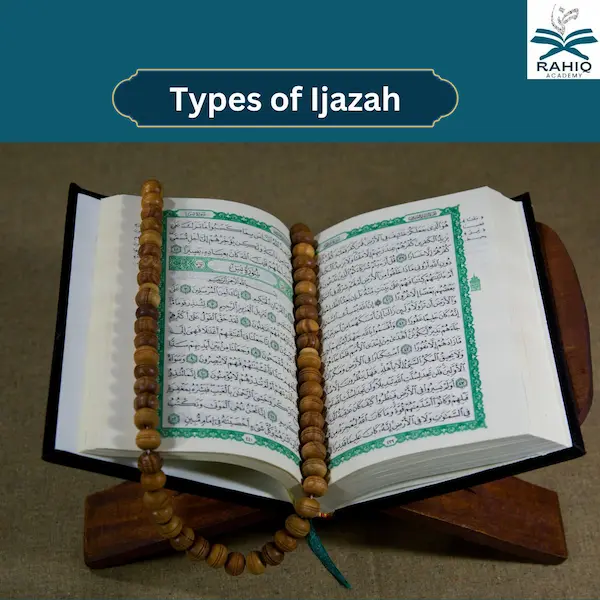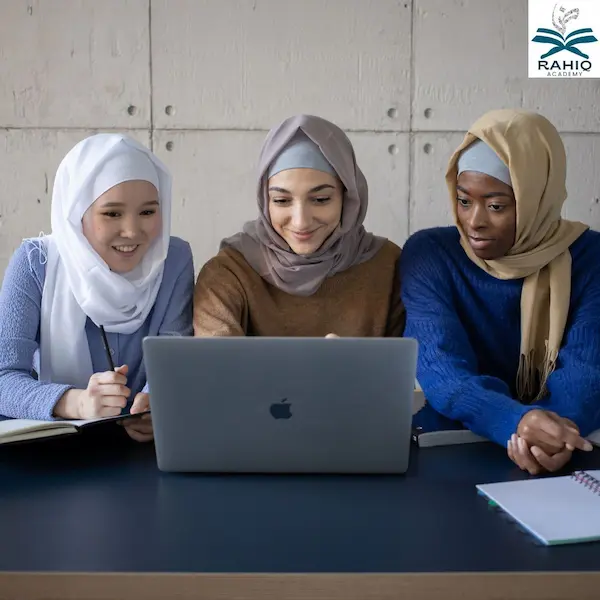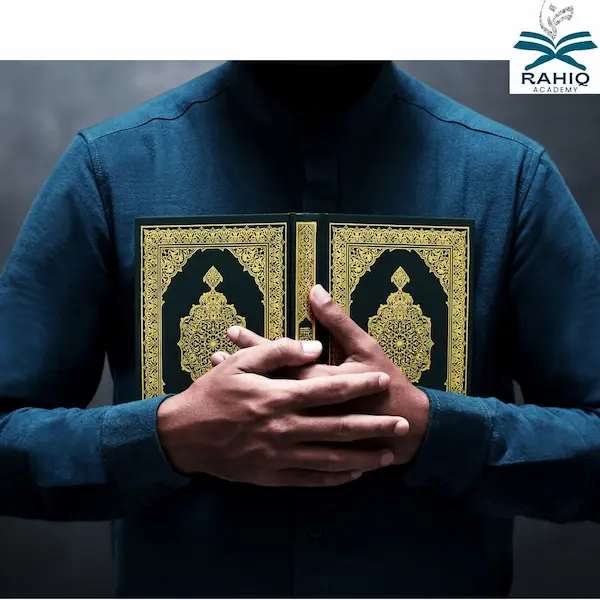Quran Ijazah Meaning refers to an authorization or license that a scholar grants to a student, indicating that the student has mastered the recitation and, in some cases, memorization of the Quran.
Ijazah system is deeply rooted in the preservation and accurate transmission of the Quran. It ensures that the sacred text is recited and taught correctly, adhering to the precise rules of Tajweed (the art of Quranic recitation) and proper pronunciation. The process of obtaining an Ijazah is rigorous and involves extensive study and practice under the guidance of a qualified teacher who already holds an Ijazah.
Types of Ijazah

In the study of the Quran, several types of Ijazah are awarded to students based on their mastery of different aspects of Quranic knowledge. Each type of Ijazah serves a distinct purpose and represents a significant achievement in the study and preservation of the Quran.
Ijazah in Quran Memorization (Hifz)
This type of Ijazah is granted to students who have successfully memorized the entire Quran. It certifies that the student can recite the entire Quran from memory with accuracy and proper pronunciation. The process involves rigorous study and the ability to recite the Quran without errors in the presence of a qualified Sheikh or Quran teacher. Achieving this Ijazah requires dedication, discipline, and often years of consistent effort. Once awarded, the student is authorized to teach Quran memorization to others.
Certificate in Quran Recitation with Tajweed
In this type, the student receives a certificate that acknowledges their ability to recite the Quran correctly with proper Tajweed rules. It certifies that the student has mastered the rules and principles of Tajweed, ensuring accurate pronunciation and recitation of the Quran. However, this certificate is not an Ijazah, as obtaining an Ijazah in Tajweed typically requires the student to be a Hafiz (one who has memorized the entire Quran) and able to recite it from memory in the presence of a qualified instructor.
Ijazah in Qirat
Ijazah in Qirat focuses on the various modes of Quranic recitation. Qirat refers to the different recognized ways of reciting the Quran, each with slight variations in pronunciation and recitation style, passed down from the Prophet Muhammad (PBUH). This Ijazah involves studying and perfecting a specific recitation style or narration, such as the Ijazah with the narration of Hafs ‘an ‘Asim. It is a specialized certification that requires in-depth study and practice of the chosen Qirat under a qualified instructor.
Other Types of Ijazah
Beyond the primary types mentioned above, there are Ijazahs for various other areas of Islamic studies, including Hadith (the sayings and actions of the Prophet Muhammad), Fiqh (Islamic jurisprudence), and other Islamic disciplines. Each Ijazah signifies a level of mastery and the authority to teach the specific subject matter to others.
By obtaining these various types of Ijazah, students and scholars contribute to the preservation and accurate transmission of Islamic knowledge, ensuring that the teachings of the Quran and other Islamic sciences are passed down correctly to future generations.
The Conditions Required to Receive Ijazah
Receiving an Ijazah is a significant achievement that requires meeting specific conditions and criteria. These conditions ensure that the student has attained a high level of proficiency and can accurately preserve and transmit the knowledge of the Quran.
Messenger of Allah (ﷺ) saying:
“Whoever takes a path upon which he seeks knowledge, then Allah makes a path to Paradise easy for him. And indeed the angels lower their wings in approval to the one seeking knowledge (Jami` at-Tirmidhi 2682)
Here are the primary conditions required to receive an Ijazah:
Mastery of Quranic Recitation and Memorization
To receive an Ijazah, the student must demonstrate exceptional mastery in recitation or memorization of the Quran. This involves:
- Correct Pronunciation and Tajweed: The student must recite the Quran with proper Tajweed, ensuring accurate pronunciation, articulation, and adherence to the rules of Quranic recitation.
- Memorization: For an Ijazah in Hifz, the student must have memorized the entire Quran and be able to recite it from memory without any errors.
Study Under a Qualified Sheikh or Teacher
The student must study under a qualified Sheikh or Quran teacher who already holds an Ijazah. This teacher provides guidance, instruction, and regular assessment of the student’s progress.
- Continuous Assessment: The teacher continuously evaluates the student’s recitation or memorization to ensure they meet the required standards.
- Personal Attention: The teacher provides personalized feedback and corrections to help the student achieve perfection in their recitation or memorization.
Formal Examination and Recitation
The final step in obtaining an Ijazah involves a formal examination where the student recites portions or the entire Quran in the presence of the qualified teacher.
- Oral Examination: The student is required to recite selected passages or the entire Quran from memory during an oral examination.
- Approval from the Teacher: The teacher must be fully satisfied with the student’s recitation or memorization before granting the Ijazah.
Adherence to Islamic Etiquettes and Ethics
The student must exhibit good Islamic character and adhere to Islamic etiquettes and ethics. This includes:
- Sincerity and Humility: Demonstrating sincerity in their efforts to learn and a humble attitude towards their teachers and peers.
- Respect and Discipline: Showing respect for the Quran, the teacher, and the learning process, and maintaining discipline throughout their studies.
By meeting these conditions, students can earn an Ijazah, certifying their expertise and authorizing them to teach the Quran to others. This ensures the accurate transmission and preservation of Quranic knowledge across generations.
Importance of Ijazah
The Ijazah system holds profound significance in the Islamic tradition, especially concerning the Quran. Importance of Ijazah spans several dimensions, from the preservation of Quranic knowledge to the personal and communal benefits it offers. Here are some key reasons why Ijazah is crucial:
Preservation of Authenticity
One of the primary purposes of Ijazah is to ensure the accurate and authentic transmission of the Quran. By granting Ijazah, a qualified teacher certifies that the student has learned and can teach the Quran without errors, maintaining the integrity of the sacred text.
- Unbroken Chain of Transmission: The Ijazah represents an unbroken chain (Sanad) that traces back to the Prophet Muhammad (PBUH). This chain guarantees that the teachings have been preserved and passed down accurately through generations.
Ensuring Proper Recitation and Memorization
Ijazah certifies that the recipient has mastered the correct recitation (Tajweed) and, if applicable, the memorization of the Quran (Hifz). This mastery is essential for teaching others and preserving the Quran’s linguistic and phonetic purity.
- Quality Assurance: The rigorous process to obtain an Ijazah ensures that only those with a high level of proficiency in Quranic recitation and memorization can teach others.
Spiritual and Personal Development
Pursuing and obtaining an Ijazah is a journey of spiritual growth and personal development. The discipline, dedication, and perseverance required to achieve this certification enhance the individual’s relationship with the Quran and their faith.
- Spiritual Benefits: The process deepens the student’s understanding and connection to the Quran, fostering a greater appreciation for its teachings and a stronger commitment to practicing its principles.
Authority to Teach
An Ijazah grants the holder the authority to teach the Quran to others. This certification ensures that the teacher is qualified and competent, thereby maintaining high standards of Quranic education.
- Educational Impact: By certifying qualified teachers, the Ijazah system helps maintain a high level of Quranic education, ensuring that students receive accurate and well-taught lessons.
Community and Cultural Continuity
Ijazah plays a crucial role in preserving Islamic culture and heritage. It ensures that the knowledge and practices of the Quran are passed down through generations, maintaining the continuity of Islamic traditions.
- Cultural Preservation: By upholding the traditions of Quranic teaching and recitation, Ijazah helps preserve the cultural and religious identity of Muslim communities worldwide.
The Ijazah system is more than just a certification; it is a cornerstone of Islamic education and cultural heritage. By ensuring the accurate transmission of Quranic knowledge, it preserves the integrity of the sacred text and fosters spiritual and educational growth within the Muslim community.
Can I Receive Ijazah Online?

In recent years, the advancement of technology has made it possible for students to obtain an Ijazah online. This method of learning and certification offers flexibility and accessibility to those who may not have the opportunity to study in person with a qualified Sheikh or Quran teacher. Here’s how you can receive an Ijazah online:
Availability of Online Programs
Many reputable institutions and academies now offer online Ijazah programs. These programs are designed to provide the same level of education and certification as traditional in-person courses.
- Comprehensive Courses: Online Ijazah programs cover all necessary aspects, including Quran memorization (Hifz), Tajweed rules, and various Qirat (recitation styles).
- Qualified Instructors: These programs are taught by experienced and qualified instructors who hold an Ijazah themselves, ensuring high-quality education.
Flexibility and Convenience
One of the primary benefits of online Ijazah programs is the flexibility they offer. Students can learn at their own pace and schedule classes according to their convenience, which is particularly beneficial for those with busy lifestyles or residing in remote areas.
- Personalized Learning: Students can arrange one-on-one sessions with their instructors, allowing for personalized feedback and attention.
- Accessibility: Online programs eliminate geographical barriers, making it possible for students from all over the world to learn from esteemed scholars.
Structured Learning Path
Online Ijazah programs provide a structured learning path that includes step-by-step guidance, regular assessments, and evaluations. This ensures that students meet the rigorous standards required to receive an Ijazah.
- Regular Assessments: Students undergo periodic assessments to evaluate their progress and readiness for the final certification.
- Final Examination: To receive the Ijazah, students must successfully pass a final examination, which usually involves reciting the Quran or specific portions from memory in front of their instructor.
Certification Process
Upon completing the course and passing the final examination, students are awarded an Ijazah. This certification is recognized and respected within the Islamic community and carries the same weight as an Ijazah obtained through traditional means.
- Digital Certification: Some institutions provide digital Ijazah certificates, which can be verified and authenticated online.
- Traditional Certification: In some cases, students may receive a physical Ijazah certificate mailed to them upon completion.
FAQ
Q:What is the Quran Ijazah Course?
A: Quran Ijazah course is a specialized program where students work closely with a certified teacher to master Quranic recitation or memorization.
Q:What is the Quran Ijaza Program?
A:The Quran Ijaza Program is an in-depth study pathway designed to help students attain mastery in either Quranic recitation or memorization. Under the direct supervision of a certified instructor, students work on advanced recitation and apply Tajweed rules meticulously.
Q:Do I Need Ijazah to Teach Quran?
A:While an Ijazah is not mandatory for teaching the basics of Quran recitation, it is highly recommended, especially for teaching advanced Tajweed and Quran memorization.
Q:How Do I Get My Ijazah?
A:To obtain an Ijazah, follow these steps:
- Find a Certified Teacher
- Choose Your Path: Decide if you’re pursuing an Ijazah in Hifz (memorization) or Qira’at (recitation). Some programs cover both.
- Practice Regularly
- Undergo Assessments
- Complete the Final Evaluation
This process can take anywhere from several months to a few years, depending on your starting point and dedication
Q:How to Get Ijazah in Quran?
To earn an Ijazah in the Quran, follow this structured approach:
- Determine Your Ijazah Focus: Decide if you want an Ijazah in Hifz (memorization) or Qira’at (recitation). This choice will help guide your search for a suitable program.
- Enroll in a Qualified Program
- Commit to Consistent Practice
- Participate in Evaluations
Conclusion
Receiving an Ijazah online is a viable and increasingly popular option for students worldwide. Online Ijazah programs offer the flexibility, accessibility, and quality necessary for mastering Quranic knowledge and achieving this esteemed certification. By leveraging modern technology, students can connect with qualified instructors, receive comprehensive education, and uphold the tradition of accurate Quranic transmission.
Rahiq Academy Offer an amazing Ijazah Course with experienced instructors, and flexible learning options to help you achieve your Quranic goals
Enroll Now , Don’t miss your free trial session .




